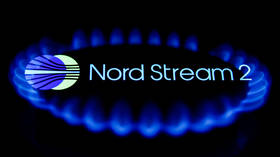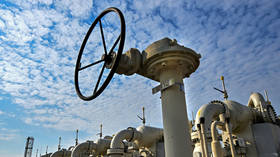Swiss court rules on Nord Stream 2

A Swiss court in the city of Zug has suspended the bankruptcy procedure for Nord Stream 2 AG, the European operator of the Nord Stream 2 gas pipeline, the firm said Wednesday on the website of the Swiss Official Gazette of Commerce.
At the request of the company, the procedure was suspended until September 2022, while the court issued a four-month (until September 10) moratorium on loan payments.
The news of the bankruptcy broke in late March, when the Stuttgarter Zeitung newspaper cited the company's managing director, Matthias Warnig, as saying that it was going to file for bankruptcy. The company did not confirm these reports at the time, noting that it had merely informed the Swiss authorities of having to let go of its staff.
That happened after the German government suspended the process of certifying the pipeline in response to Russia’s recognition of the sovereignty of Ukraine's breakaway Donbass republics, while Washington imposed sanctions on the company and its leadership.
The Nord Stream 2 gas pipeline was fully completed and ready for launch on September 10, 2021. However, the US and the EU pressured Germany not to certify the pipeline for months before what ended up being Berlin’s final decision on February 22.
The pipeline consists of two strings, which are able to transport a total of 55 billion cubic meters of natural gas per year from Russia to Europe through the Baltic Sea.
For more stories on economy & finance visit RT's business section












